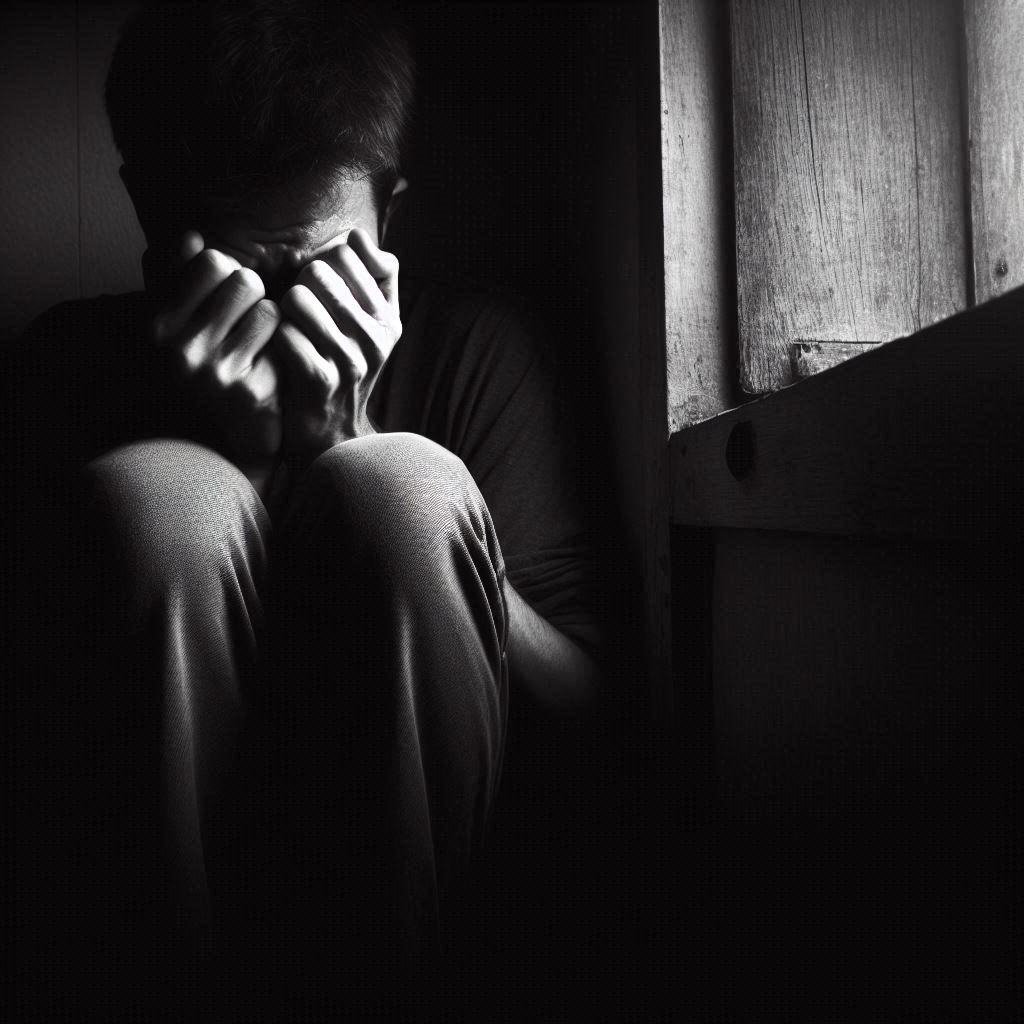Are you struggling with the overwhelming fear of open spaces or public places? Agoraphobia can make everyday activities daunting, confining you within the perceived safety of familiar environments. But there’s good news: overcoming agoraphobia is a real possibility. With the right strategies—from systematic desensitization to mindfulness exercises—you can start to reclaim your freedom and enjoy life beyond your comfort zones. This post will guide you through practical steps to face and beat agoraphobia, equipping you with the tools to expand your horizons gradually and safely.
Understanding Agoraphobia
Agoraphobia is a mental health condition characterized by an intense fear of situations where escape might be difficult or help may not be readily available. This fear can be overwhelming and may lead individuals to avoid specific environments or experiences that trigger their anxiety.
Definition of Agoraphobia
Agoraphobia is more than just a fear of open or crowded spaces; it involves a broader apprehension of places or situations that could provoke anxiety, leading to feelings of being trapped, helpless, or embarrassed. The fear experienced by individuals with agoraphobia goes beyond typical uneasiness and can significantly impact their daily routine.
Causes of Agoraphobia
Agoraphobia can develop as a complication of panic disorder or may arise after experiencing a panic attack in a specific situation. While the exact cause is not fully known, several factors can contribute to the development of agoraphobia, such as genetic predisposition, traumatic life events, or a history of anxiety disorders.
Symptoms of Agoraphobia
Symptoms of agoraphobia can manifest in various ways, including physical sensations like rapid heartbeat, sweating, chest pain, and difficulty breathing. Additionally, individuals with agoraphobia may fear leaving their home alone, being in crowded places, or losing control in public settings. These symptoms can be debilitating and significantly affect one’s quality of life.
Impact of Agoraphobia on Daily Life
Agoraphobia can severely limit individuals’ ability to engage in social activities, attend work or important events, and manage daily responsibilities. The condition can lead to isolation, avoidance behavior, and a sense of distress that interferes with normal functioning. Seeking professional help and support is crucial in managing the impact of agoraphobia and improving overall well-being.
For more information on agoraphobia, including its symptoms, causes, and treatment, refer to reliable sources such as the Mayo Clinic and the NHS.
Seeking Professional Help
Seeking professional help is a crucial step in managing agoraphobia. There are different avenues through which individuals with agoraphobia can seek assistance to cope with their condition effectively. Here are some common approaches to seeking professional help:
Therapies for Agoraphobia
Therapies play a vital role in treating agoraphobia. Cognitive-behavioral therapy (CBT) is one of the most common and effective treatments for agoraphobia. CBT focuses on identifying and altering negative thought patterns and behaviors associated with agoraphobia. Exposure therapy is another form of therapy that gradually exposes individuals to feared situations, helping them learn how to cope with their anxiety in a controlled setting. Other therapeutic approaches include acceptance and commitment therapy (ACT) and mindfulness-based therapies, which can also be beneficial for individuals with agoraphobia.
For more information on therapies for agoraphobia, you can visit resources like NHS – Treatment for Agoraphobia and Psych Central – Agoraphobia Treatment.
Medications for Agoraphobia
Medications can be prescribed to help manage the symptoms of agoraphobia, especially when used in conjunction with therapy. Selective serotonin reuptake inhibitors (SSRIs) are commonly used antidepressants that can be effective in reducing anxiety and panic attacks associated with agoraphobia. Other medications, such as benzodiazepines, may be prescribed for short-term relief of acute anxiety symptoms. It’s important to consult a healthcare provider before starting any medication regimen for agoraphobia to ensure proper monitoring and effectiveness.
To learn more about medications for agoraphobia, you can refer to sources like Mayo Clinic – Agoraphobia Treatment and GoodRx – Medications for Agoraphobia.
Support Groups and Online Resources
Support groups and online resources can offer valuable assistance and a sense of community for individuals dealing with agoraphobia. Joining a support group allows individuals to connect with others who understand their experiences, share coping strategies, and provide mutual encouragement. Online resources, such as forums, chat groups, and educational websites, can also provide additional information and support for individuals with agoraphobia. These resources can complement traditional therapy and medication by offering continuous support and guidance.
For access to support groups and online resources for agoraphobia, you can explore platforms like Medical News Today – Online Support Groups and Mayo Clinic – Support Groups.
Seeking professional help through therapies, medications, support groups, and online resources can significantly enhance the management and recovery process for individuals dealing with agoraphobia. It’s essential to find the right combination of interventions that best suit individual needs and preferences.
Self-Help Strategies
When dealing with agoraphobia, self-help strategies can be empowering tools to alleviate symptoms and regain control over your life. Here are some effective self-help techniques that can aid in managing agoraphobia:
Systematic Desensitization
Systematic desensitization is a behavioral therapy approach that involves gradually exposing yourself to feared situations while practicing relaxation techniques. By incrementally facing fears from the least to the most anxiety-provoking scenarios, individuals with agoraphobia can learn to manage their anxiety responses and decrease avoidance behaviors. This method aims to replace fear with a sense of calmness and relaxation, ultimately reducing the impact of phobic triggers over time.
For more in-depth information on systematic desensitization and its application in overcoming agoraphobia, you can refer to resources like A systematic desensitisation programme for agoraphobia and Systematic Desensitization for Panic Disorders.
Cognitive Behavioral Therapy (CBT)
Cognitive Behavioral Therapy (CBT) is a widely recognized and effective treatment for agoraphobia. This therapeutic approach focuses on challenging and modifying negative thought patterns and behaviors that contribute to anxiety and avoidance. By identifying and restructuring maladaptive beliefs, individuals can learn coping strategies and problem-solving skills to navigate phobic situations more effectively. CBT equips individuals with the tools to confront fears, manage panic symptoms, and regain confidence in situations they once found overwhelming.
To delve deeper into how CBT can be utilized in treating agoraphobia, you can explore resources such as Cognitive Behavioral Therapy for Panic Disorder and Agoraphobia – CBT Psychology for Personal Development.
Mindfulness and Relaxation Techniques
Incorporating mindfulness and relaxation practices into your daily routine can help reduce anxiety levels and enhance overall well-being when dealing with agoraphobia. Techniques like deep breathing exercises, meditation, progressive muscle relaxation, guided imagery, and gentle exercise can promote relaxation, improve emotional regulation, and increase self-awareness. By cultivating mindfulness, individuals can learn to stay present in the moment, acknowledge their thoughts without judgment, and develop a sense of inner calm amidst external stressors.
For practical guidance on implementing mindfulness and relaxation techniques for agoraphobia, you can explore resources such as 5 Relaxation Techniques for Agoraphobia and Relaxation techniques: Try these steps to lower stress.
By incorporating systematic desensitization, cognitive behavioral therapy, and mindfulness practices into your self-help toolkit, you can take proactive steps towards managing agoraphobia and fostering a sense of empowerment in navigating challenging situations. These strategies, when practiced consistently and in conjunction with professional guidance, can aid in building resilience and promoting emotional well-being in the face of agoraphobia.
Lifestyle Changes for Managing Agoraphobia
Living with agoraphobia can be challenging, but implementing certain lifestyle changes can greatly assist in managing this condition effectively. Here are some key lifestyle adjustments that can help individuals cope with agoraphobia:
Healthy Diet and Exercise
Maintaining a healthy diet and incorporating regular exercise into your routine can have a positive impact on managing agoraphobia symptoms. Foods rich in whole grains, fruits, and vegetables can provide essential nutrients to support overall well-being and help alleviate anxiety levels. Consider integrating proteins and complex carbohydrates into your meals for sustained energy and mood stability. Physical exercise not only promotes physical health but also releases endorphins, known as “feel-good” hormones, which can reduce stress and boost your mood. Check out nutritional strategies to ease anxiety for more insights.
Establishing a Routine
Creating a structured daily routine can offer a sense of stability and predictability, which is beneficial for individuals with agoraphobia. Establishing a schedule that includes set wake-up times, meal times, and designated activities can help alleviate anxiety and provide a sense of control. By incorporating small achievable tasks into your daily agenda, you can gradually build confidence in managing challenging situations. Explore a daily plan for overcoming agoraphobia for practical guidance on structuring your day effectively.
Avoiding Substance Abuse
Substance abuse can exacerbate agoraphobia symptoms and hinder the recovery process. Avoiding the use of alcohol, drugs, or other substances is crucial in managing agoraphobia effectively. Substance abuse can increase feelings of anxiety, dependency, and agitation, making it harder to cope with agoraphobia triggers. Seeking support from professional resources such as SAMHSA’s National Helpline can provide guidance on overcoming substance abuse challenges while managing agoraphobia.
By incorporating healthy lifestyle choices, establishing routines, and avoiding substance abuse, individuals living with agoraphobia can take proactive steps towards better managing their condition and improving their overall well-being.
Practical Tips for Overcoming Agoraphobia
Dealing with agoraphobia can be challenging, but there are practical strategies that can help you manage and overcome it. Here are some effective tips to help you on your journey to beating agoraphobia.
Gradual Exposure to Triggers
Gradual exposure therapy is a proven method for overcoming agoraphobia. This technique involves facing your fears in a step-by-step manner, starting with situations that are mildly uncomfortable and progressively advancing towards more challenging scenarios. By exposing yourself to triggers gradually, you can desensitize yourself to the anxiety they provoke and build confidence in managing them. [Learn more about gradual exposure therapy for agoraphobia here](https://www.mayoclinic.org/diseases-conditions/agoraphobia/diagnosis-treatment/drc-20355993).
Setting Realistic Goals
Setting realistic and achievable goals is key to making progress in overcoming agoraphobia. While it’s important to challenge yourself, setting overly ambitious goals can lead to frustration and setbacks. By establishing small, attainable milestones, you can track your progress and celebrate each accomplishment along the way. This helps in building momentum and increasing your confidence in facing agoraphobic situations. [Explore how to set realistic goals with exposure therapy here](https://www.ovrcome.io/post/setting-goals-with-exposure-therapy-for-overcoming-phobias-and-anxiety).
Creating a Safe Space
Having a designated safe space can provide comfort and reassurance when dealing with agoraphobia. This area should be a calming environment where you feel secure and at ease. It can be a physical location within your home or a mental refuge that you can envision in times of distress. Creating and utilizing a safe space can help you cope with anxiety and panic attacks, offering a sense of control and stability. [Discover more about the importance of creating a safe space here](https://www.verywellmind.com/how-and-why-you-should-create-a-safe-space-for-yourself-3144981).
By incorporating gradual exposure to triggers, setting realistic goals, and establishing a safe space, you can develop effective coping mechanisms to combat agoraphobia and regain control over your life. Remember, progress may take time, but with perseverance and the right strategies, you can successfully overcome agoraphobia.
Conclusion
Now that we have explored various strategies to overcome agoraphobia, it’s important to remember that seeking help and support is an essential step towards healing. Agoraphobia can be a challenging condition, but with the right approach and a positive mindset, recovery is achievable.
Embrace a Holistic Approach
Consider a combination of therapy, medications, and self-care practices to address agoraphobia comprehensively. Therapy sessions provide a safe space to explore underlying issues, while medications can help manage symptoms. Additionally, incorporating relaxation techniques and mindfulness exercises into your daily routine can contribute to your overall well-being.
Build a Support Network
Opening up to trusted friends, family members, or a support group can offer invaluable emotional support during your agoraphobia recovery journey. Sharing your experiences and feelings with others who understand can help alleviate feelings of isolation and strengthen your resilience.
Practice Self-Compassion
Be kind to yourself as you navigate the ups and downs of agoraphobia treatment. Acknowledge your progress, no matter how small, and celebrate your victories along the way. Remember that recovery is a gradual process, and it’s okay to have setbacks. Treat yourself with the same compassion you would offer to a loved one facing similar challenges.
Stay Committed to Your Healing Journey
Consistency is key when dealing with agoraphobia. Attend therapy sessions regularly, adhere to your medication regimen as prescribed, and prioritize self-care practices that promote mental and emotional well-being. Stay committed to the strategies that work best for you and remain patient with yourself throughout the recovery process.
In conclusion, overcoming agoraphobia requires a combination of professional guidance, personal perseverance, and the support of loved ones. By taking proactive steps towards healing and adopting a holistic approach to treatment, individuals can regain control over their lives and break free from the limitations of agoraphobia. Remember, you are not alone in this journey, and brighter days are ahead.








